Looks really similar to the RLDdesigns cap.
https://adventure-ready.com/rld-design-truck-caps-canopies/
https://adventure-ready.com/rld-design-truck-caps-canopies/
Disclaimer: Links on this page pointing to Amazon, eBay and other sites may include affiliate code. If you click them and make a purchase, we may earn a small commission.
Some additional pictures of the rooftop rack. IMO looks great.



Looks really similar to the RLDdesigns cap.
https://adventure-ready.com/rld-design-truck-caps-canopies/
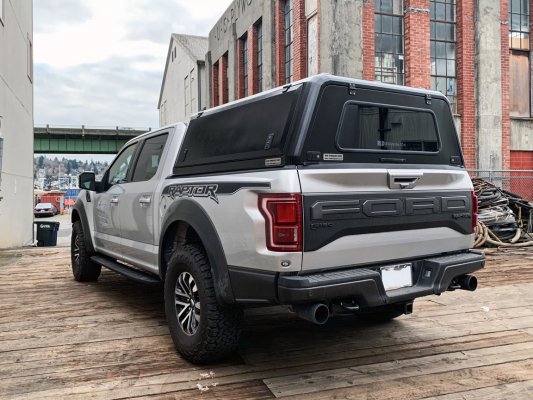
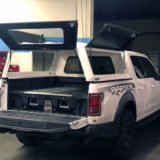
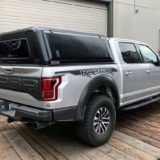

Thanks for posting more pics! Although now you've made it harder for me to choose. I didnt realize there were rails on top which would make mounting a roof tent a piece of cake. Man now I'm really considering getting a top with internal mounting optionsSome additional pictures of the rooftop rack. IMO looks great.



I like this one too - not having the windows on the side enhances security which is a good thing IMO. Here are some pics with this canopy on the Raptor. I think these options look much better than the standard ARE tops.
https://www.rlddesignusa.com/p/ford/f-150-truck-cap-canopy/
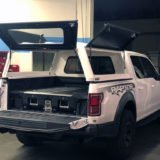
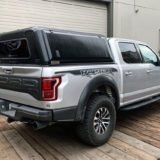

I've seen these on various sites and I'm curious about the appeal over just using a tent, cot, etc. For the same price you can get some very nice camping gear and use less space. Not knocking it, so don't get me wrong. Just wondering...
I went tho the RSI website because your supposed to be able to build one to your specs but it only allows you to purchase one for your truck at a set price.
Not really sure what it comes with if anything, might just be the shell.
Not my list - but thought it summarized better than I could.
Pros of RTT:
Cons:
- Comfort — the integrated mattress is better than any thermarest, and you are insulated from the sometimes cold or wet ground much better.
- Convenience — keeping all your sleeping kit stored in the tent is handy and gives more room elsewhere for stuff. Plus not having to re-stuff a sleeping bag every day is nice AND easier on the bag.
- Set Up — setting up an RTT is pretty fast. We can go from loaded/pulling into the campsite to sleeping in less than 5 minutes. We can sometimes do this with a ground tent but only at established sites with a tent pad, otherwise you can be looking around for a long time for a good patch of ground.
- Safety — being up off the ground feels a bit safer. A real hungry critter can get in, but it’s elevation means it’ll have to work at it, but even if it’s mostly placebo, feeling safer means better sleeps.
- Flexibility — you never need to worry about stones, roots, ant hills, etc. Which can make setting up a ground tent a challenge. As long as your rig is reasonably level, you can make camp. I’ve camped in some areas where a ground tent wouldn’t have been a good option (like near a river on stones) but the RTT worked great. We can also stay in RV parks if we need to — most RV parks may not allow Tenting but do allow RTTs because they are more like an RV. Some are balking at this but in our experience a lot of cities will have a convenient RV park and if part of your adventure is exploring a city this is handy. For example we did a trip to California and wanted to see Disneyland. Nearest camp space was over an hour away, but there was an RV park less than a mile from the Disney gates.
RTTs are generally better for 4x4 touring for the reasons above — where every day is a new camp location. But if you are going out to run trails from a base camp, an RTT actually makes things harder unless it’s on a trailer. So a lot of it depends on your trip style — overlanding (different place each night) or camping (same spot out in the sticks for a few days).
- Cost — Dollar for dollar, a ground tent costing the same as a roof top tent will be overall a far better product, so ground tents are cheaper by a wide margin. For the cost of even a budget RTT you can get the best 3 season tents on the market.
- Weight - the lightest RTT I’m aware of on the market is still around 100 lbs. If you are in a Jeep, that is 13% of your payload just on your tent. Most are closer to 150 lbs.

